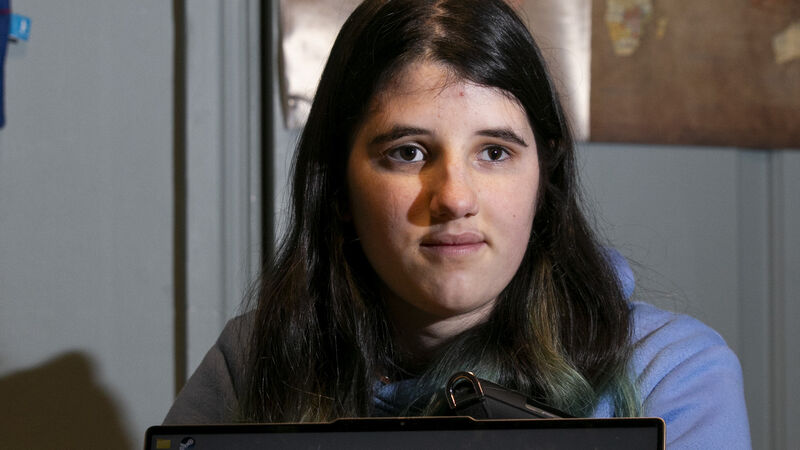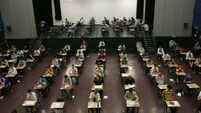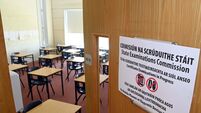'The examiners thought she was deaf, not blind': The exam struggles of visually impaired students

Maya Kositck, who has some limited vision, requires modified exam papers. Photo: Gareth Chaney
Imagine if the powers that be in education wanted to save money, so they decided to cut the size of Leaving Cert exam papers and cram every question and comprehension into a single A4 page.
Knowing that you couldn’t read this, they tell you ‘We’re sorry but we’ll get someone to read the questions out for you instead’. Then, you are given an extra 10 minutes in Irish, English, history and geography, and up to 30 minutes extra in every other subject.













